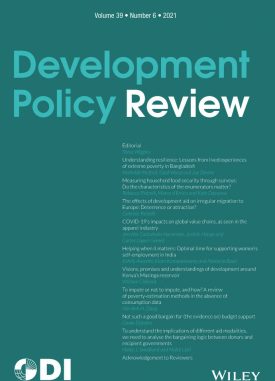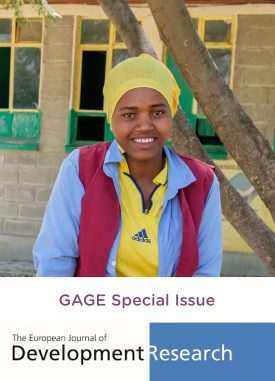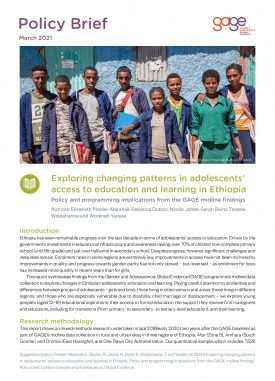As the mid-way point for the United Nations Sustainable Development Goals (SDG) timeframe nears, countries affected by conflict and fragility represent one of the key challenges to achieving SDG 4—-ensuring inclusive and equitable quality education for all. Drawing on qualitative research undertaken in late 2021 in South Gondar zone, in Ethiopia’s war-torn northern Amhara region, with adolescent girls and boys (n = 80), their caregivers (n = 11) community leaders and local service providers, including teachers (n = 31), this article explores the experiences of young people during and after their communities were occupied by the Tigray People’s Liberation Front, and the multi-pronged effects the conflict has had on their educational pathways. It finds that for many, schooling has been disrupted by: recruitment into the armed forces or organized youth movements (Fano); destruction of school infrastructure and records by the occupying forces; an inability to concentrate on education on account of trauma and stress; and a loss of educational aspirations given fears of prolonged insecurity. At the school level, it also identifies negative impacts in terms of teacher presence, teaching quality and the provisioning of educational activities; compounded by reduced education budgets as local, regional and federal government resources are diverted to the war effort. The article concludes with some reflections on the implications of our findings for government, development partners, communities, non-governmental organizations, and schools, in their efforts to strengthen education services and build resilience, including through linkages with social protection, justice, and psychosocial support services, in contexts of ongoing fragility.
Suggested citation
Jones, N., Abebe, W., Emirie, G., Gebeyehu, Y., Gezahegne, K., Tilahun, K., Workneh, F. and Vintges, J. (2022) ‘Disrupted educational pathways: The effects of conflict on adolescent educational access and learning in war-torn Ethiopia.’ Front. Educ. 7:963415. (https://doi.org/10.3389/feduc.2022.963415)


